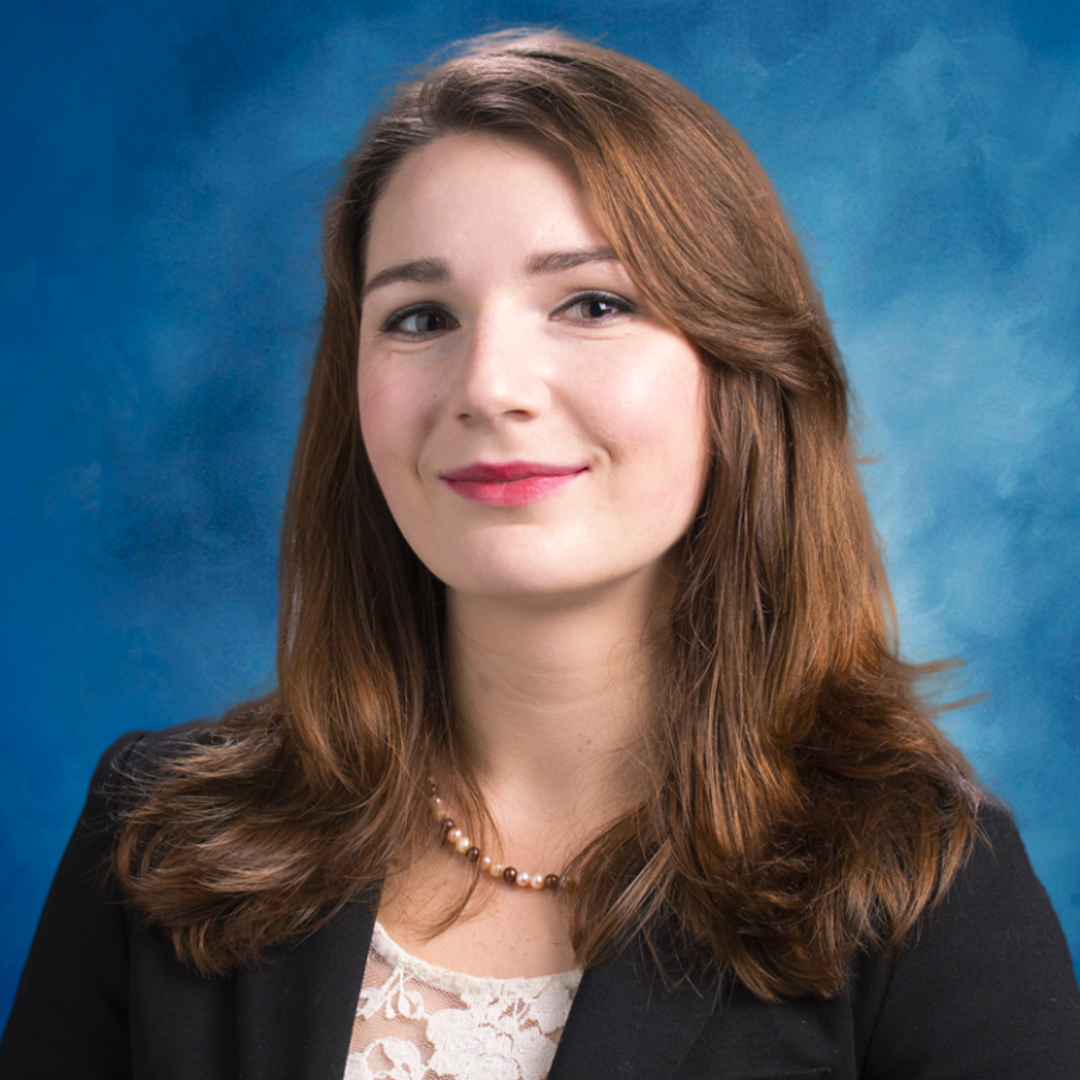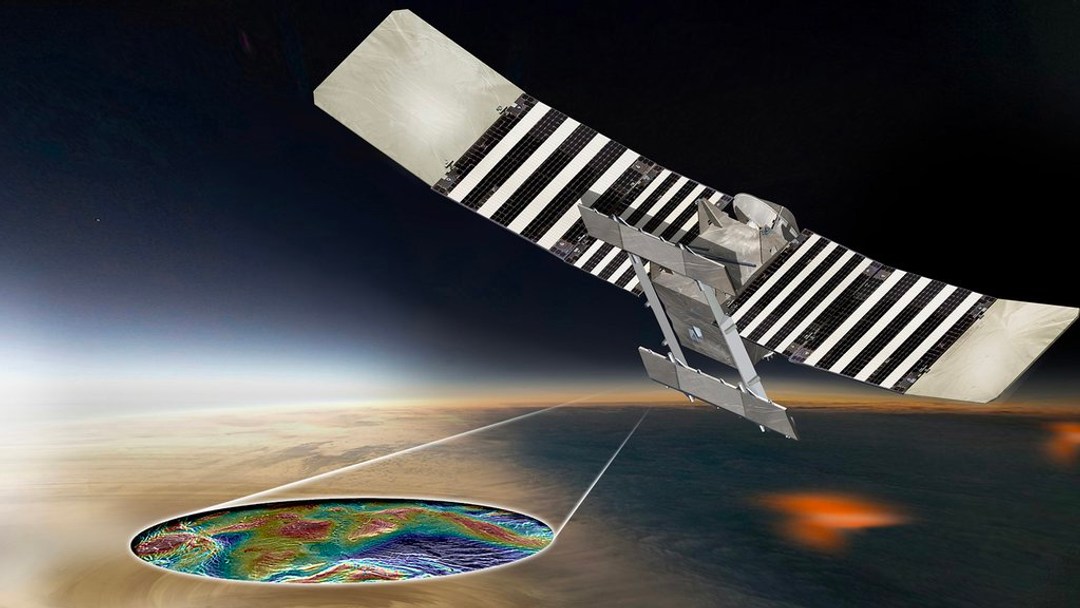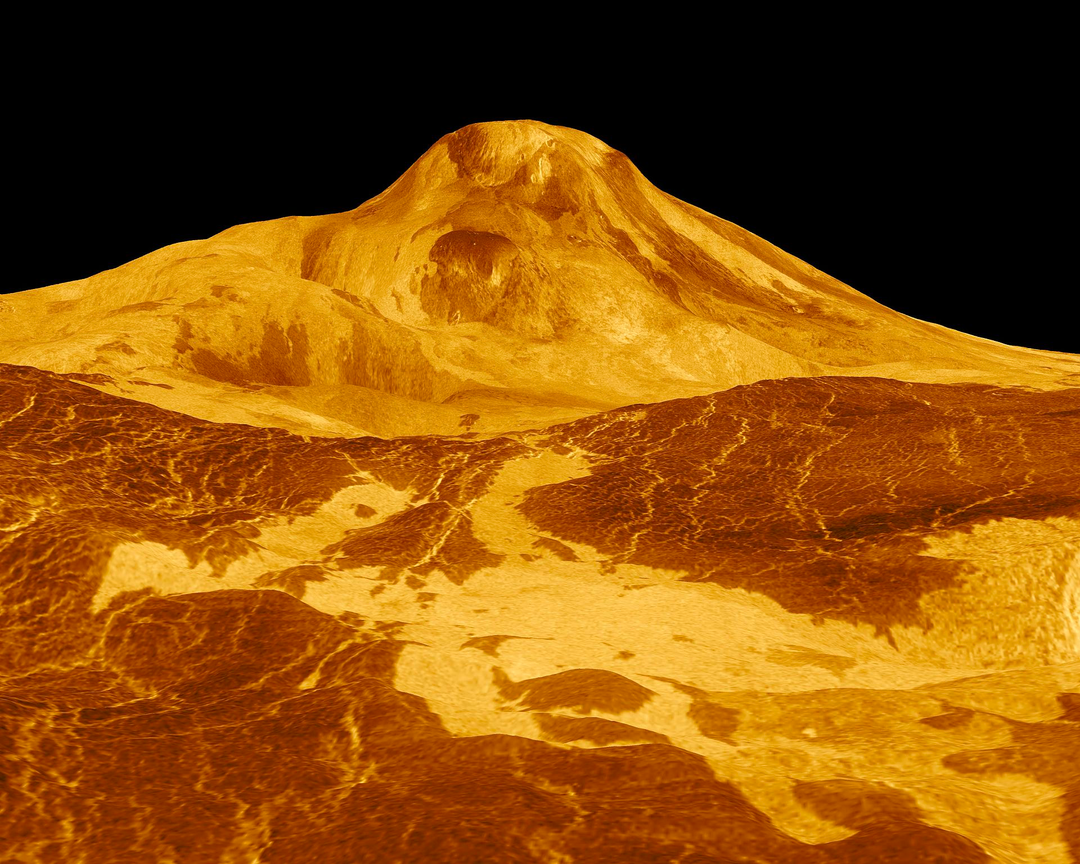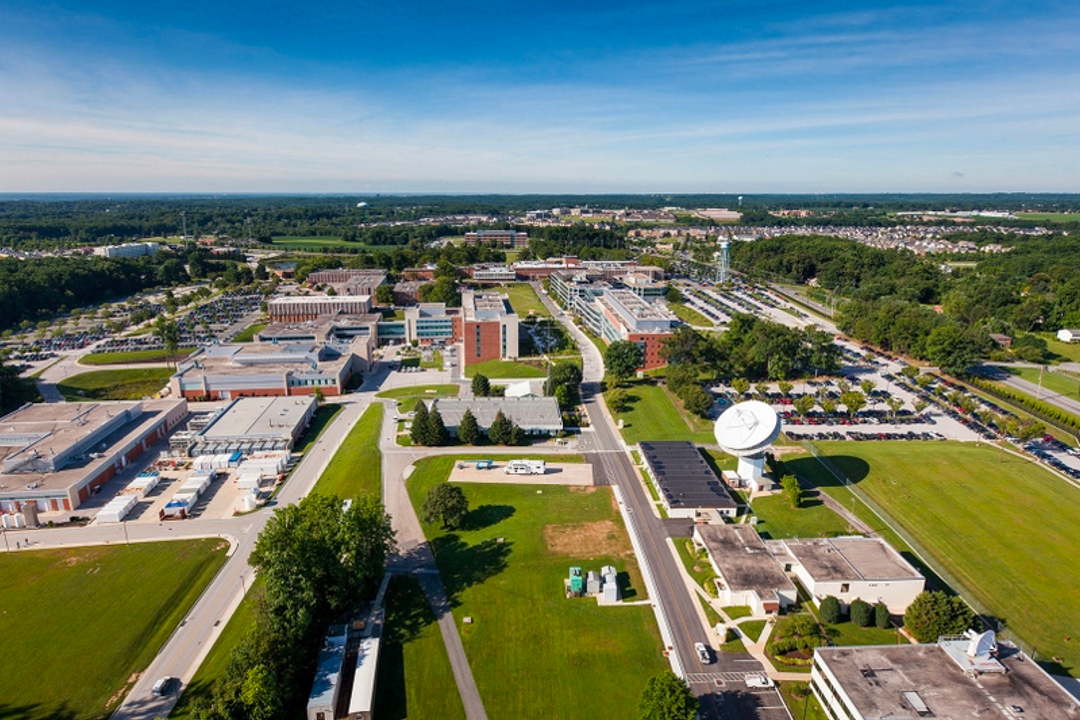Meet Dr. Lauren Jozwiak
Planetary Volcanologist
Dr. Lauren Jozwiak is a planetary volcanologist at the Johns Hopkins Applied Physics Laboratory (APL) studying lava and magma interactions of various planets in the solar system. Dr. Jozwiak is a co-investigator of the VERITAS mission, where she will use radar to study volcanism on Venus.
STEM to the Sky
Oct 14, 2021
- What does your current research entail and why is it important to study it?
- Have you always wanted to go into planetary science?
- How well do you think your college experiences prepared you for your current career?
- Is there anything that surprised you about your current role as a planetary volcanologist at APL?
- What made you choose to become a research scientist instead of a professor in academia?
- Can you describe some of the exciting projects you are currently working on?
- What would a typical “day in the life” look like for you?
- How flexible would you say your work schedule is?
- What skills would you say are important for a role like yours?
- What would you say to a student who is interested in pursuing planetary science?
- Do you have any general advice for students who are interested in STEM?
- What are your recommendations for documentaries, books or other resources for students who might be interested in learning more?
- What are some advancements in the field that you think will take place in the future?
What does your current research entail and why is it important to study it?
Planetary volcanology and volcanology in general are so fundamental to how we understand planets because we can't get to the mantle on any planet, but the mantle is really the bulk of where the material of the planet is. Volcanoes and volcanic deposits take the mantle and put it out onto the surface. So if you want to learn really anything about how planets formed, how they cooled down with time, and what kind of materials might have been incorporated into the planet, you really have to study the volcanic deposits. They can help us understand how the solar system formed and the differences in the planets.
Have you always wanted to go into planetary science?
During my freshman year of high school, I was watching a NOVA program with my dad about string theory called “The Elegant Universe”. After that, I was convinced that I wanted to be a theoretical physicist. All throughout high school, I pursued as much science as I could. I grew up near Chicago, so I actually had an internship at Fermilab, the particle accelerator, and I also did an internship at the Adler Planetarium, which interestingly enough, convinced me that I did not want to go into astronomy (fortunately, I've softened down on that stance).
During my freshman year of college, I realized that I was not as in love with physics as I thought I was. I had the good fortune to see a poster in the hallway the day before second semester started for class called “The Solar System”. I've always been interested in space, even though the astronomy thing wasn't for me, so I was like, let's take the class and see what it is. Within about three classes, I switched my major over to planetary science. It was everything that I liked about physics, which was figuring out how things worked and how things in the universe worked. Getting to do that in space was the absolute dream.
Within that, I found volcanology as this really interesting window. It's great because volcanoes happen on all of the planets, so I didn't have to pick one to focus on, which I really liked.

(Credit: JHU APL)
How well do you think your college experiences prepared you for your current career?
Given that I am a planetary scientist, I would say majoring in it all throughout prepared me pretty well. It prepared me but not to any detriment if I had majored in anything else.
Planetary science is one of those fields where it almost requires a lot of different backgrounds to come together to work. There aren’t many places that offer undergraduate planetary science degrees, and that’s totally fine because physics, chemistry, biology, meteorology, and geology — all of these different disciplines — come together into planetary science. There’s a real breadth of degrees that you can take that can prepare you to go into a graduate program in planetary science.
Is there anything that surprised you about your current role as a planetary volcanologist at APL?
One of the things that surprised me the most was how many projects that we work on. I had this picture in my mind that I’m coming out as an expert on this very niche topic that I was going to dig down and study. Then, when I got to APL, so many projects were just constantly floating around. Planetary science is a field where we tend to think a thousand years down the line at all times, looking for future mission opportunities and technologies.
You are constantly being pulled into projects where you might have some broad background or no background. At any given time, I probably have 10 different projects that I’m working on. Only three or four of them are actual hard research that I trained in; the rest of them are theoretical missions or instrument concepts.

(Credit: NASA - Propulsion Jet Laboratory)
What made you choose to become a research scientist instead of a professor in academia?
There is a little bit of a “random walk” element in the field. You don’t always necessarily get to choose the opportunities that are present at the time that you’re coming along.
When I was coming out of graduate school, there was a mission called MESSENGER that I was involved in as a graduate student. Through that project, I got to know many of the scientists of APL because that was the institution that ran the mission. They had a postdoc opportunity opening up for the department, and they didn’t have anyone who specialized in volcanology, so they asked me if I would like to take the position. Of course, any job is a good job, and a job at APL is a fantastic job. I was very excited to take that.
Through the postdoc, I immediately got involved in a number of different projects and missions. I like the variety that it gives me, and I think that’s what’s kept me in this position so far.
As a professor, your priorities are different. There’s obviously still a heavy emphasis on research, but a lot of it is on getting funding for your students to do research as opposed to yourself doing research. Then, of course, there’s an emphasis on teaching as well.
I haven’t ruled it out yet. I have guest lectured at several different universities. But, I think where I am in my career right now, I’m enjoying doing the research myself.
Can you describe some of the exciting projects you are currently working on?
A month ago, NASA selected two missions to go to Venus, VERITAS and DAVINCI+. I’m a co-investigator on the VERITAS mission, which is so exciting because we have not gone back to Venus as the U.S. in about 30 years. My own personal role in it is going to be using the radar data that we get back to look for evidence of new active volcanism on the surface of Venus. We’re not going to launch until 2028, but that’s an exciting project down the way.
A project I’m working on right now is using radar at the south pole of the moon to look for water ice deposits because we think there is water ice at the lunar poles. Radar is really the best instrument to actually find it because it sees depth; most other instruments just see the top. I will say that we think we found something very interesting. We are currently writing up a paper for it, and we’ll talk about some of those results and whether or not we think we found some really key areas of water ice exploration.

(Credit: NASA – Jet Propulsion Laboratory)
What would a typical “day in the life” look like for you?
I have many projects, so it really depends on what season you’re in. For example, if you asked me this question back in February, I was working on two machine concepts that were in competition. At that point in time, any given day would be filled with meetings and telecoms with the engineering teams as we talked about last minute tweaks to the instrument design, answering questions that had come in from the review panel, and brushing up on presentations and presenting to the panel.
On a much more normal day, I like to divide my time by planets/themes since I can’t really switch my mind too quickly between the different ones. I’m in the middle of a moon week right now, so it will involve any telecoms that I have. I have a couple this week working towards developing a new mission idea from scratch. We’re doing some background research for this mission involving what techniques we could use that we’ll have to pick between.
I’ve been working on some figures for a Nature Geoscience paper. I like putting on some nice YouTube videos and sitting there making figures. Writing is a big part of science. Whether it’s writing to get funding, writing up papers, or writing summaries of your research to update your colleagues, there’s always some amount of writing in any given day or week.
How flexible would you say your work schedule is?
The APL planetary science group is very flexible and really strives to push work life balance. I am not a morning person, so I can get into the office at 9:30 AM, whereas some of my colleagues come in at 7 AM. Everyone knows everyone else’s schedules. If you have weirder hours, you usually put them on your calendar, and meetings are scheduled around that. There’s a very healthy respect for everyone’s schedules here, which I appreciate.
It’s also very flexible in the sense that if I need to leave work in the middle of a day for a dentist appointment, that’s fine. Because so many of us work on so many independent projects, it’s up to you to figure out your schedule.
My biggest key for work life balance is to have a very clear division between work and life. In normal circumstances, I don’t check my email on the weekends or break out the work laptop at home or on vacations. I try to keep the basement as the work zone. Even in graduate school, I would stay at the office to do my work and wouldn’t bring it home to my apartment.
What skills would you say are important for a role like yours?
Technical knowledge: Start off with a strong foundation in math. It doesn’t have to be super crazy advanced math, but definitely Calculus, Linear Algebra, and Differential Equations. For the sciences, have at least a background in physics, chemistry and biology, and then significantly more emphasis in whatever you do. For example, as a volcanologist, I have a larger emphasis on geology and geochemistry. Someone who works on the atmosphere would have a much stronger atmosphere and fluid dynamics background. A modeler would have a stronger emphasis on programming skills. Something nice about this field is that you can find people who complement each other in different ways.
Soft skills: Writing, speaking, and presenting are so important to being a good scientist because you need to be able to communicate your ideas clearly in writing to be able to get funding to do your science and also to tell people about the science you did. Conferences are huge in our field, we probably have one every couple months to communicate our work in. The more clearly you can do that to people, the more you’re going to be sought out for your expertise.
What would you say to a student who is interested in pursuing planetary science?
Go for it! It’s a super fun field. There’s also a lot of space; you can basically dig into any sort of niche problem that you’re curious about in the field, whether it’s a process, like volcanism for me, or a planet like Mars or Mercury. If you can find something that will grab your attention, follow that excitement and go down that rabbit hole.
In terms of actually getting out there and doing it, I would say keep yourself broad. Make sure you have that strong background in a bunch of different types of science because you might not know exactly what you want to focus on.
Be aggressive and persistent and seek out internship opportunities. NASA, The Lunar Planetary Institute, and APL all run several undergraduate research opportunities. Even just cold emailing can be effective. I got my first internship in undergrad because I cold emailed someone who referred me to someone else who happened to have funding for the summer. Stay curious and persistent!

Aerial view of JHU Applied Physics Laboratory (Credit: Maryland Space Grant Consortium)
Do you have any general advice for students who are interested in STEM?
For people who are interested in STEM, be honest with yourself about what you’re curious about. A lot of times, you perhaps know what part of STEM you want to go into, but keep your eyes and ears open. If something is interesting to you, don’t be afraid to pursue it because you might find something that’s an even better fit for you.
For all of the shy people like me who knew the answer but were terrified of raising their hand in class, my advice is to sit in the first three rows because that is where professors make eye contact. If they see that you’re engaged, they will take notice of that even if you don’t raise your hand. You should also go to office hours, or simply email the professor if you have questions. Knowing that you’re thinking about these things can be just as impactful as having gone to office hours or having raised your hand in every single class.
What are your recommendations for documentaries, books or other resources for students who might be interested in learning more?
My heart always goes to the original Cosmos with Carl Sagan. For my 16th birthday, my dad actually got me a boxed DVD set of that, and every day that summer, I watched at least one of the episodes. Just about anything that NOVA puts out regarding planetary science is going to be pretty fantastic and well done.
In terms of books, there’s one called The Earth Book by Jim Bell, who is a Mars researcher. This book really takes a geologist’s look. Geology is something that’s not really covered in basically any level of American education, which is sad because geology is history; it’s the history of things around you as opposed to the history of people. That book is really gorgeous and takes you through a lot of really interesting things that you probably haven’t heard in your normal education.
There’s also another book called The Sirens of Mars by Sarah Stewart Johnson, who was actually a postdoc at MIT when I was an undergraduate student. It talks about how we search for life on Mars and a little bit of a broader perspective of why we’re interested in life on Mars as humans.
What are some advancements in the field that you think will take place in the future?
The Europa Clipper mission projected for the 2030s is going to be really huge for understanding Jupiter’s moon, Europa. It will be able to answer whether or not Europa is constantly erupting water ice into the solar system. We’ve seen plumes once come from Europa, but we don’t know if they do it with any frequency. If we’re talking about places where life exists in the solar system, Europa is a much better bet than Mars. If there is evidence of this active process on Europa, it gets even more likely that there’s some sort of heat or energy source inside the moon that would be powering the ocean.
Both Venus missions, DAVINCI+ and VERITAS, are figuring out whether Venus is an active world or not. We tend to think about Venus as being geologically dead for no real reason other than we only think of the Earth as being geologically alive (which is very Earth biased of us). Since Venus is geologically the exact same size as Earth, it should have its same internal heat engine powering it. Being able to figure out if there are active processes on Venus will be a huge advancement in our understanding.